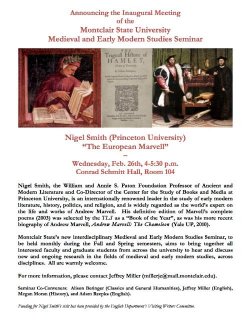February 2023
Pamela Patton (Princeton University)
The Ethiopian at the Door: Fantasy, Literality, and Race in the Cantigas de Santa María

Wednesday, February 22, 4-5:30pm on Zoom
Dr. Patton is the director of The Index of Medieval Art at Princeton University. An art historian of medieval Spain and its environs, Dr. Patton’s particular research interests focus on the role of the image in articulating cultural identity and social dynamics among the multiethnic communities of the Iberian Peninsula. Among Dr. Patton’s many publications are two monographs, Pictorial Narrative in the Romanesque Cloister (2004) and Art of Estrangement: Redefining Jews in Reconquest Spain (2012).
November 2022
Thomas Vozar (University of Hamburg)
The Anne Hutchinson Tragedy in Seventeenth-Century European Thought: Greg Horn and His Readers
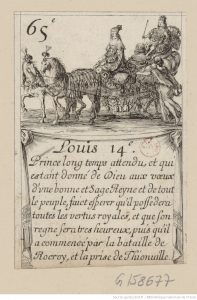
Thursday, November 10, 1-2:30pm on Zoom
Dr. Vozar studied Classics at Oberlin College and the University of Pennsylvania and earned his PhD in English at the University of Exeter before taking up his current position as an Excellence Strategy Postdoctoral Fellow at the University of Hamburg. A scholar of early modern literary and intellectual culture, he has written on topics ranging from a newly discovered letter by Sir Philip Sidney to a Neo-Latin summary of Islamic doctrine by the Ottoman dragoman Ali Ufki. His first book, Abstracted Sublimities: Milton, Longinus, and the Sublime in the Seventeenth Century, is forthcoming in the Oxford University Press series Classical Presences, and he is currently working on a second book project on scholarship and politics in the English Revolution.
October 2022
Minji Lee (Montclair State University)
Women’s Reproductive Body: the Porous and Sealed Womb in Premodern Medicine and Religion
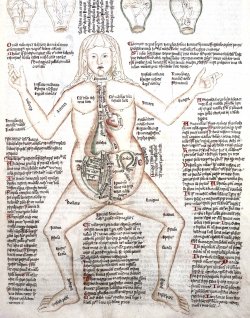
Wednesday, October 26, 4-5pm — School of Business 412
Dr. Minji Lee teaches in the Department of Religion and the Medical Humanities Program at Montclair State University. Currently, she is researching the ways in which medieval European medical theories and modern Korean folk medicine allow women to maintain their reproductive health and understand their own bodies in positive ways. Dr. Lee participated in making a Korean independent documentary project, “For Vagina’s Sake (2017)” that demonstrates how Western premodern medicine “diabolized” women’s menstrual bodies.
April 2022
David Sterling Brown (Binghamton University and The Racial Imaginary Institute)
Just Us: An Early Modern Critical Race Studies Conversation
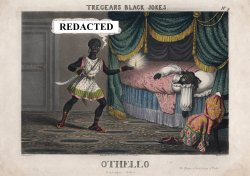
Wednesday, April 20, 4-5pm — Cole 141
Dr. David Sterling Brown—a Shakespeare and premodern critical race studies scholar—is Assistant Professor of English at Binghamton University. His antiracist research, which centers on pedagogy and on how racial ideologies circulate in and beyond the early modern period, is published or forthcoming in numerous peer-reviewed and public venues such as Shakespeare Bulletin, Literature Compass, Radical Teacher, Shakespeare Studies, Hamlet: The State of Play, White People in Shakespeare and Los Angeles Review of Books. His forthcoming book projects, one of which is under contract with Cambridge University Press, examine how whiteness operates in Shakespearean drama. Through his current Mellon/ACLS Scholars and Society Fellowship, Dr. Brown has a residency with The Racial Imaginary Institute, founded by Claudia Rankine.
February 2022
Francesco Toto (University Roma Tre)
Rousseau and Revolution in the Second Discourse
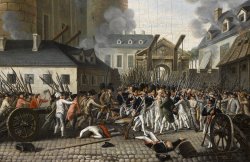
Wednesday, February 23, 10-11am, on Zoom at this link
Francesco Toto is Assistant Professor at the University Roma Tre, where he works in anthropological, ethical, and political thought. His research has been focused on Hobbes, Spinoza, Helvétius and Rousseau, but he has also been interested in other well-known (Adam Smith, Sade) and lesser-known (Jean Meslier, Dom Deschamps) authors. He is the author of two books, one on Spinoza (L’individualità dei corpi. Percorsi nell’ Etica di Spinoza, Milan, 2015), and one on Rousseau (L’origine e la storia. Il Discorso sull’ineguaglianza di Rousseau, Pisa, 2019); has published many articles and book chapters in Italian, French, English and Spanish; and has edited several books and journal issues. He is a member of the research group focused on the topic of “Compassion in Action: Theories of Sympathy and Construction of Otherness in the Long Eighteenth Century,” and co-directs the journal “Consecutio rerum” (www.consecutio.org).
October 2021
Jeff Horn (Manhattan College)
The Making of Terrorist: Alexandre Rousselin and the French Revolution
Wednesday, October 27, 4-5pm
Dr. Jeff Horn is Professor of History at Manhattan College. He is the author or editor of seven books, including The Path Not Taken: French Industrialization in the Age of Revolution, 1750-1830 (MIT Press, 2006) and Economic Development in Early Modern France, 1650-1800: The Privilege of Liberty (Cambridge University Press, 2015). He is the Co-President of the Society for French Historical studies (2020-2021). In this talk, Dr. Horn will discuss his new book, The Making of a Terrorist: Alexandre Rousselin and the French Revolution (Oxford University Press, 2021).
Zoom link:
2020-21 Special Series: “Social Distance / Remote Intimacy”
May 2021
Nicholas McDowell (University of Exeter)
Reading Milton Reading Shakespeare Politically: What the Discovery of Milton’s Copy of the First Folio Does and Does Not Tell Us
Wednesday, May 19, 4pm
Nicholas McDowell is Professor of Early Modern Literature and Thought at the University of Exeter. An award-winning scholar who has received such honors as Philip Leverhulme Prize in Modern European Languages, he is the author of several books, including The English Radical Imagination: Culture, Religion, and Revolution, 1630-1660 (2003), Poetry and Allegiance in the English Civil Wars: Marvell and the Cause of Wit (2008), and most recently, Poet of Revolution: The Making of John Milton (2020). He is also the editor, with Nigel Smith, of The Oxford Handbook of Milton (2009) and, with N. H. Keeble, of Milton’s Vernacular Regicide and Republican Writings (2013) in Oxford University Press’s ongoing Complete Works of John Milton.
Zoom link:
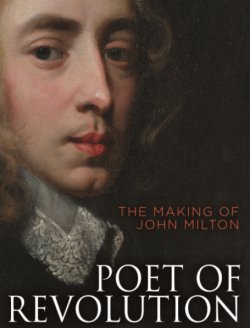
Ting Chang (University of Nottingham)
The King’s Docile Body? The Role of Maps, Games, and Globes in the 17th and 18th Centuries in France
Co-sponsored by the Department of World Languages and Culture and the Institute for the Humanities
Wednesday, May 5, 5:30pm
Remote meeting: Register at https://bit.ly/3rWibHW
Ting Chang is Lecturer in the Department of Art History at the University of Nottingham, UK. She completed her PhD in modern European art history at the University of Sussex, England. Her book titled “Travel, Collecting, Museums of Asian Art in Nineteenth-Century Paris” was published by Ashgate Publishing in 2013. “Travel, Collecting, Museums of Asian Art in Nineteenth-Century Paris” is a historical study that brings together the political, economic, and cultural relations underlying Euro-Asian contact. She argues that the cultural history of modern France is written through art collecting and interpretation. Her book highlights previously unexamined issues of the social relations, foreign labours, and somatic experiences of travel by Europeans in East Asia in the nineteenth century.
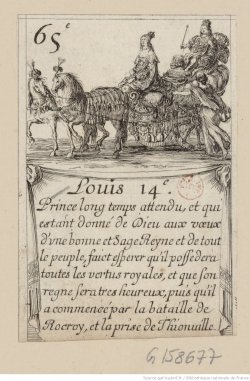
April 2021
Mordechai Feingold (Caltech)
The Freedom to Philosophize in Early Modern England
Wednesday, April 28, 4-5:30pm
Remote meeting: See Zoom link and password below
Mordechai Feingold is the Kate Van Nuys Page Professor of the History of Science and the Humanities at Caltech. He is the author of such landmark books as The Mathematicians’ Apprenticeship: Science, Universities and Society in England, 1560-1640 (1984); The Newtonian Moment: Isaac Newton and the Making of Modern Culture (2004); and, with Jed Z. Buchwald, Newton and the Origin of Civilization (2013). He has also edited many collections of essays, including recently Labourers in the Vineyard of the Lord: Scholarship and the Making of the King James Version of the Bible (2018), and among the scholarly journals he edits are Erudition and the Republic of Letters and History of Universities.
Zoom link: https://montclair.zoom.us/j/86337676769?pwd=NStCUlJKTkNjVW91Y0Z5MlVwMStoZz09
Password: 283746
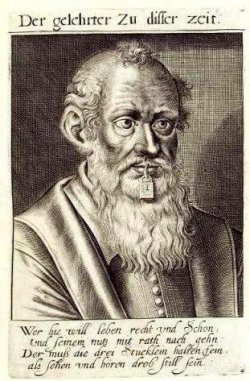
December 2020
Aminah Hasan-Birdwell (Columbia University)
The Ethics of Imagination in Cavendish’s Orations of Diver Sorts
Wednesday, December 9, 4-5pm
Remote meeting: See Zoom link and password below
Aminah Hasan-Birdwell is currently a Visiting Assistant Professor and Associate Research Scholar in the Department of Philosophy at Columbia University and is the Alva and Beatrice Bradley Assistant Professor of Philosophy at Furman University. Her research attends to marginalized figures in early modern philosophy and their contributions to philosophical issues of ontology, political thought, and ethics, as well as their relevance to combating the presence of racism and misogyny in the philosophical canon.
Margaret Cavendish understood imagination to hold potential therapeutic qualities for those who have experienced violence and destruction. The productive use of imagination is central not only to Cavendish’s natural philosophy and literary works, but also to her presentation of the varied ethical responses to the tragedies of war in Part III of Orations of Diver Sorts. In this text, Cavendish’s advice to individuals “ruined by war” is to rid their mind of fears, grief, and terrors and inspire hope by entertaining themselves with “pleasing imaginations.” Cavendish recommends the power of imagination to inspire the hope of the populace and catalyze the rebuilding of a city or a commonwealth after war, either in the capacity of electing new magistrates, building statues, or staging theatrical performances. Ultimately, drawing on these examples and Cavendish’s other works, I argue that Cavendish demonstrates an ethical dimension of imagination that is essential to human flourishment after the experience of tragedy.
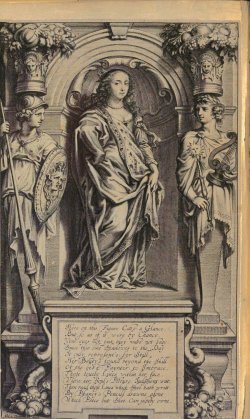
October 2020
Christopher Hutchinson (University of Mississippi)
The English Sweating Sickness and the Rhetoric of Virality
Co-sponsored by the Medical Humanities program
Wednesday, October 28, 4-5pm
Remote meeting: See Zoom link and password below
Christopher Hutchinson is Assistant Professor of German at the University of Mississippi. His research focuses on early modern German literature, print history, and the history of disease. He holds a Ph.D from Stanford in German Studies and a B.A. in Modern and Medieval Languages from Cambridge.
When a deadly new epidemic, the English sweating sickness, struck Germany in the Summer of 1529, it sparked a wave of short, vernacular, printed pamphlets on the disease, which some writers and doctors accused of spreading fear and lies. In this talk, I argue that this spread of harmful information on the sweating sickness is indicative of medical writers’ growing anxieties about the spread of cheap, vernacular pamphlets in first century of print. In their responses to the sweating sickness, these writers draw parallels between the spread of the disease and the spread of fear and misinformation on the disease, suggesting the pamphlets might be taking more lives than the sweating sickness itself. In doing so, they develop what I call a “rhetoric of virality” to give voice to their anxieties about the printed word.
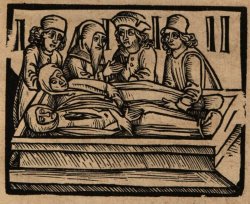
December 2019
Laura Stevens (University of Tulsa)
Hieroglyph, Treasure Chest, Prayer Book, Poem: Learning to Read the English Bible
Thursday, December 5, 4-5:30pm
Schmitt Hall, Room 104
Laura M. Stevens is Chapman Associate Professor of English at the University of Tulsa, where she teaches English, American, transatlantic, and Native American literature of the seventeenth and eighteenth centuries. A past president of the Society of Early Americanists and former editor of Tulsa Studies in Women’s Literature, she is the author of The Poor Indians: British Missionaries, Native Americans, and Colonial Sensibility (UPenn Press, 2004) and of the forthcoming book Friday’s Tribe: Eighteenth-Century English Missionary Fantasies (Upenn Press).
That the English Bible, especially the King James translation, was a cornerstone of early modern English literature, is undisputed, as is the importance of the Protestant Reformation to rising literacy rates. But how exactly did ordinary, minimally educated people understand the task of reading the Bible? How did they fit scripture into the activities of everyday devotion and moral development? What images and words emerged to describe the intimacies or estrangements that governed the relationship between scripture and individual Christian? And what role did books as material objects play in developing this relationship? This talk will explore three texts that fit under the broad category of what David Hall has termed “devotional steady sellers” of the seventeenth and eighteenth centuries, along with a fourth text that was central to English missionary, diplomatic, and colonizing efforts among the Haudenosaunee people of the American northeast. These include extracts of the Bible in verse, the first Bible-verse-a-day publication, the first “hieroglyphic” bible, which provides illustrations for each word in selected verses, and a selective translation of the Book of Common Prayer into Mohawk. These publications simultaneously gesture to the particularities of the London book trade but also to an international, transatlantic Protestant network of publishers, authors, and readers. This talk will consider these texts within the frameworks of book history but also of emotion studies, asking in particular how these texts structured individual readers’ affective relationship to the Bible and to Protestant Christianity.
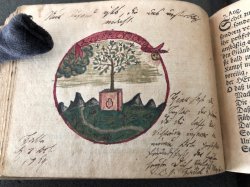
April 2019
Gail Kern Paster (Director Emerita, Folger Shakespeare Library)
Instrumentalizing Emotion: Henry V and the Surprising Uses of Anger
Wednesday, April 24, 4-5:30pm
School of Business 210
Gail Kern Paster is Director Emerita of the Folger Shakespeare Library in Washington, DC and Editor Emerita of Shakespeare Quarterly. She has written widely on the history of the body and the history of emotions in the early modern period, including Humoring the Body: Emotions and the Shakespearean Stage (2004). She has served as Trustee and President of the Shakespeare Association of America and was named to the Queen’s Honours List in 2011 as a Commander of the British Empire.

April 2019
Deborah Steinberger (University of Delaware)
“Befriending the Female Reader: Women’s Stories in Le Mercure Galant, 1672-1710.”
Wednesday, April 10, 4-5:30 p.m
Schmitt 110
Deborah Steinberger is Associate Professor of French and Comparative Literature at the University of Delaware, where she chairs the French Faculty and directs the program in Comparative Literature. Her research areas include seventeenth-century theater and writing by early modern women. She has published articles on these subjects, as well as critical editions of epistolary and dramatic works by the 17th-century writer and painter Françoise Pascal. Her current research focus is early modern French journalism, and she has published several articles and is currently writing a book on the early French newspaper Le Mercure Galant. She is also collaborating on a digital humanities project headed by a team at the Université de Fribourg (Switzerland), on Donneau de Visé’sLes Nouvelles nouvelles.
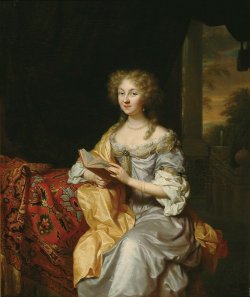
March 2019
Henry S. Turner (Rutgers University)
“Race, Experience, and the Early Modern World in Shakespeare’s Comedy of Errors“
Wednesday, March 20, 4-5:30 p.m.
Center for Environmental and Life Sciences, 207
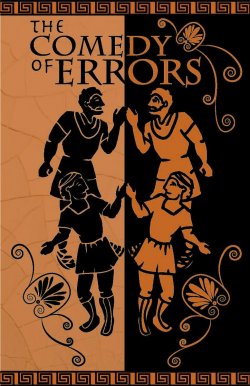
March 2019
Richard Conway (Montclair State University)
“Aztec Merchants, Silver Mines, and the Provisioning of Spanish Cities in Early Colonial Mexico”
Wednesday, November 28, 4-5:30 p.m.
Center for Environmental and Life Sciences, 207
Richard Conway is a historian of colonial Latin America, whose research interests include the social and environmental history of Mexico. He received his PhD from Tulane University and teaches courses on Early Latin America, the History of Mexico, and Indigenous Societies in Latin America at Montclair State University. He has published articles such as “Violence and Vigilance in Nahua Communities of Seventeenth-Century Central Mexico” (2017), “The Environmental History of Colonial Mexico” (2017) and Spaniards in the Nahua City of Xochimilco: Colonial Society and Cultural Change in Central Mexico, 1650-1725” (2014). He is currently revising his book manuscript, entitled Islands in the Lake: Environment and Ethnohistory in Xochimilco, New Spain. He also serves as the book editor of the academic journal Ethnohistory.
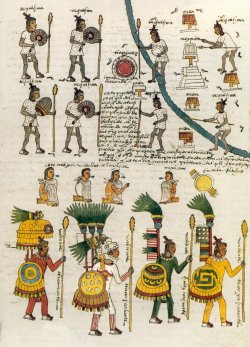
October 2018
David Sedley (Haverford College)
“Sense Variously Drawn Out”: Algorithmic Epic from Leviathan to Paradise Lost”
Wednesday, September 26th, 4 – 5:30 p.m.
Center for Environmental and Life Sciences (CELS), Room 207
David Sedley is Associate Professor of French and Comparative Literature at Haverford College. He has written a book entitled *Sublimity and Skepticism in Montaigne and Milton* (Michigan, 2005). His current project, from which this talk is drawn, is tentatively called “Race to Infinity: Distinctions between Science and Literature in Early Modern Culture.” A piece of this project, about and Madame de Lafayette and Blaise Pascal, has appeared in *Modern Language Quarterly*; another piece, about Michel de Montaigne and Francis Bacon, is forthcoming in *Romanic Review*.
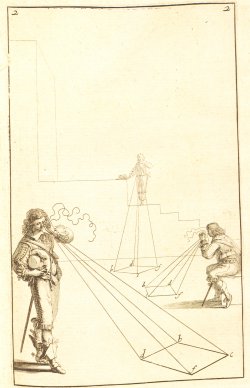
September 2018
Jesus Velasco (Columbia University)
“The Affinity Between Legal Science and the Science of the Soul in the Middle Ages”
Wednesday, October 9th, 4-5:30 p.m.
Schmitt 104
Jesús R. Velasco teaches Medieval and Early Modern Studies at Columbia. He has taught at the University of California, Berkeley, Universidad de Salamanca, Université de Paris III (Sorbonne Nouvelle), and the École Normale Supérieure (Lettres et Sciences Humaines). Among his publications are books and articles on Medieval and Early Modern knighthood, history of the book and reading, medieval political theory, law and culture, Occitan poetry, etc. He has been one of the executive directors of the Journal of Medieval Iberian Studies and a member of the MLA Committee on Scholarly Editions. He was the recipient of the 2010 John K. Walsh award for his article “La urgente presencia de las Siete Partidas”. He writes the column “Isla Fluvial” for El Norte de Castilla, Spain’s oldest daily newspaper, founded in 1854. He has been elected as a member of the Executive Committee of the MLA LLC Occitan Forum. He is one of the fellows of the 2015 The Op-Ed Project. He served as Chair of the Department of Latin American and Iberian Cultures between 2013 and 2016.
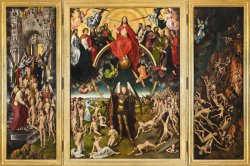
April 2018
Pascale LaFountain (Montclair State University)
“Feeling Righteous: Gesture, Evidence, and Law in Heinrich von Kleist’s Romantic-Medieval-Shakespearean Tragedy The Schroffenstein Family”
Wednesday, April 11, 4 p.m.
Center for Environmental and Life Sciences (CELS), Room 110
Pascale LaFountain received her PhD in German Studies from Harvard University in 2011 and has since then been Assistant Professor of German and French at Montclair State University. Her publications on theater, gender and performance include articles and book chapters on G.E. Lessing, Heinrich von Kleist, Elfriede Jelinek, and Heiner Müller. Her book Theaters of Error: Problems of Performance in French and German Enlightenment Theater is currently forthcoming with Palgrave MacMillan Press.
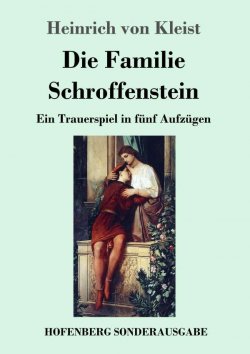
February 2018
Paul Kottman (New School for Social Research)
“Why Shakespeare Stopped Writing Tragedies”
Tuesday, February 20th, 4 p.m.
Center for Environmental and Life Sciences (CELS), Room 110
Paul A. Kottman is Associate Professor of Comparative Literature at the New School for Social Research, and Eugene Lang College, the New School for Liberal Arts. He is a member of the Committee on Liberal Studies and is affiliated with the Philosophy Department. He holds the Abilitazione, Professore Ordinario in Filosofia, Estetica (Professor of Philosophy, Aesthetics) in Italy. He has held Visiting Professorships at the University of Tokyo; the Università degli studi di Verona; Instituto per gli studi filosofici, Naples; and the International Chair in Political Languages, Dipartimento di Politiche Pubbliche e Scelte Colletive (POLIS), Università del Piemonte Orientale. He has been awarded residential fellowships at the University of Wisconsin, Madison (Institute for Research in the Humanities) and Internationales Kolleg Morphomata, Universität zu Köln.

December 2017
Patricia Akhimie (Rutgers University—Newark)
“Conduct and the Cultivation of Difference”
Tuesday, December 5th, 4-5:30 p.m.
Center for Environmental and Life Sciences (CELS), Room 110
This event is co-sponsored by the English Department’s Visiting Writers Committee
Patricia Akhimie is Assistant Professor of English at Rutgers University-Newark, where she teaches Shakespeare, Renaissance drama, and early modern women’s travel writing. She is the author of Shakespeare and the Cultivation of Difference: Race and Conduct in the Early Modern World (Routledge, forthcoming 2018). She is co-editor, with Bernadette Andrea of Traveling/Travailing Women: Early Modern England and the Wider World (U of Nebraska, forthcoming 2018). Her most recent publications include “‘Bruised with Adversity’: Reading Race in The Comedy of Errors,” in The Oxford Handbook of Shakespeare and Embodiment: Gender, Sexuality, and Race, and “Galleries and Soft Power: The Gallery in The Winter’s Tale” in Early Modern Diplomacy, Theatre and Soft Power: The Making of Peace.
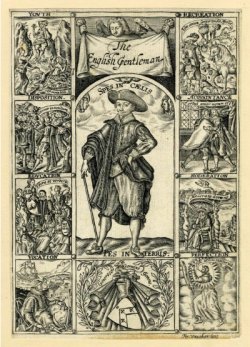
November 2017
Christopher M. Bellitto (Kean University)
“Luther and Church Reform:
Catholic and Protestant Perspectives”
Wednesday, November 8th, 4-5:30 p.m.
Center for Environmental and Life Sciences (CELS), Room 120
Christopher M. Bellitto is Professor of History at Kean University, where he specializes in the study of church history and reform. He is the author of ten books, including the companion volumes Renewing Christianity: A History of Church Reform (2001) and The General Councils (2002). He also serves as Academic Editor at Large of Paulist Press and series Editor in Chief of Brill’s Companions to the Christian Tradition, and he is the past recipient of grants from the Fulbright Program and the National Endowment for the Humanities. A member of the Public Scholar Speakers Bureau of the NJ Council for the Humanities and frequent media commentator on church history and contemporary Catholicism, his latest book is Ageless Wisdom: Lifetime Lessons from the Bible (2016).
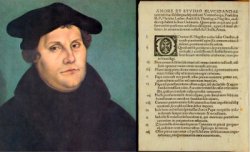
October 2017
Meghan Robison (Montclair State University)
“Moving Limbs: On the Movement of Life in Hobbes’ Leviathan“
Wednesday, October 11th, 4-5:30 p.m.
Center for Environmental and Life Sciences (CELS), Room 110
Meghan Robison is Assistant Professor of Philosophy at Montclair State University. She received her PhD from The New School for Social Research in 2016. Her work mainly focuses on political philosophy, early modern philosophy, and aesthetics. She is currently at work on a book on Thomas Hobbes’ Leviathan which offers an original reading of the exit from the State of Nature by reexamining the role of Hobbes’ conception of life as “a motion of limbs,” and its connection to the contracts that form the basis of the Commonwealth. Her talk will be drawn from this work.
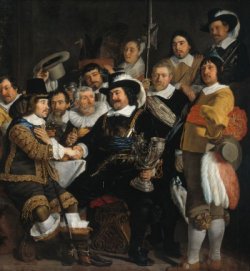
September 2017
Ann Marie Rasmussen (University of Waterloo)
“The Polyfunctionality of Script on Medieval Badges”
Wednesday, September 27th, 4-5:30 p.m.
Center for Environmental and Life Sciences (CELS), Room 110
Ann Marie Rasmussen joined the University of Waterloo (Ontario, Canada) on January 1, 2015 as the John G. Diefenbaker Memorial Chair in German Literary Studies after having been a faculty member in the Department of Germanic Languages and Literature at Duke University in North Carolina for twenty-five years. She was born and raised in the southern Willamette Valley of Oregon and received her BA from the University of Oregon and her PhD from Yale University, both in the field of Germanic Languages and Literatures. Her areas of expertise are medieval studies, German studies, and gender studies. She is the author of Mothers and Daughters in Medieval German Literature (1997); and co-editor of Medieval Woman’s Song (with Anne Klinck, 2002); Ladies, Whores, and Holy Women: A Sourcebook in Courtly, Religious, and Urban Cultures of Late Medieval Germany, with Introductory Essays (with Sarah Westphal-Wihl, 2010), and Visuality and Materiality in the Story of Tristan and Isolde (with Jutta Eming and Kathryn Starkey, 2012), as well as numerous essays. Her monograph on medieval badges is under review at a scholarly press.
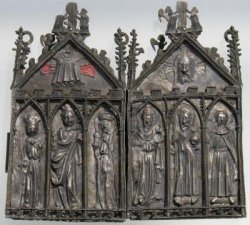
May 2017
Daniel Shore (Georgetown University)
“Making Bacon: A Digital Reconstruction of the Early Modern Social Network”
Tuesday, May 2nd, 4-5:30 p.m.
Schmitt Hall, Room 104
Daniel Shore, Provost’s Distinguished Associate Professor of English at Georgetown University, is currently completing his second book project, Cyberformalism, which will be out with Johns Hopkins University Press later this year. His first book, Milton and the Art of Rhetoric, appeared with Cambridge University Press in 2012, and he has published articles in such journals as PMLA, Critical Inquiry, Modern Philology, Shakespeare Quarterly, Milton Studies, DHQ, and others. His research has been supported by the American Council of Learned Societies, the Andrew W. Mellon Foundation, and the Folger Shakespeare Library, and he is the co-founder of the Six Degrees of Francis Bacon project, which has been funded by Google, the Council on Library and Information Resources, and the NEH.

April 2017
Caroline Castiglione (Brown University)
“A Death is a Death: Monuments to Loss and Solutions to Domestic Abuse in Moderata Fonte’s The Worth of Women”
Tuesday, April 18th, 4-5:30 p.m.
Schmitt Hall, Room 104
Caroline Castiglione is a Professor of Italian Studies and History at Brown University. She received her PhD from Harvard University. Her research interests are political, legal, gender, and women’s history in Italy and Europe between 1500-1800. Her first book, Patrons and Adversaries: Nobles and Villagers in Italian Politics, 1650-1760 (Oxford University Press, 2005) won the Helen and Howard R. Marraro Prize from the Society for Italian Historical Studies in 2006. Her second book, Accounting for Affection: Mothering and Politics in Rome, 1630-1730 (Palsgrave Macmillan, 2015) examines the symbiotic evolution of politics and mothering in early modern Rome. Seminar conveners: Alison Beringer (Classics and General Humanities), Raul Galoppe (Spanish and Italian), Kathleen Loysen (Modern Languages and Literatures), Jeffrey Alan Miller (English), Megan Moran (History), and Adam Rzepka (English).
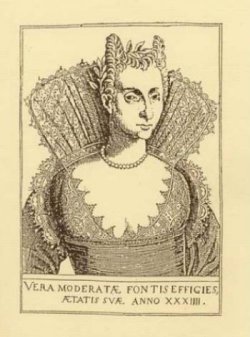
March 2017
Markus Cruse (Arizona State University)
“Marco Polo and the Global Middle Ages”
Wednesday, March 22nd, 4-5:30 p.m.
Schmitt Hall, Room 104
Mark Cruse received his PhD from New York University and is Associate Professor and Head of the French and Italian Faculty in the School of International Letters and Cultures at Arizona State University. His publications cover topics including medieval theater manuscripts, ivory writing tablets, heraldry, the senses in medieval culture, the Louvre of Charles V, and Haitian literature. His first book was a study of an illuminated copy of the Old French Romance of Alexander. His current book project focuses on the Old French manuscripts of Marco Polo’s description of the world.
Seminar conveners: Alison Beringer (Classics and General Humanities), Raul Galoppe (Spanish and Italian), Kathleen Loysen (Modern Languages and Literatures), Jeffrey Alan Miller (English), Megan Moran (History), and Adam Rzepka (English).
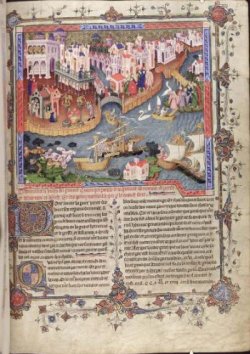
November 2016
Jorge Latorre (Universidad de Navarra)
“Don Quixote: A Bridge Between the Far East and the Wild West”
Wednesday, November 30th, 4-5:30 p.m.
Schmitt Hall, Room 104

Seminar conveners: Alison Beringer (Classics and General Humanities), Raul Galoppe (Spanish and Italian), Kathleen Loysen (Modern Languages and Literatures), Jeffrey Alan Miller (English), Megan Moran (History), and Adam Rzepka (English).
October 2016
Elizabeth Valdez del Álamo (Montclair State University)
“Mourning and Remembrance in the Twelfth Century: The Sarcophagus of Queen Blanca of Nájera”
Wednesday, October 19th, 4-5:30 p.m.
Schmitt Hall, Room 104
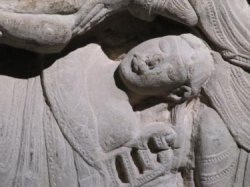
September 2016
Naomi Conn Liebler (Montclair State University)
“‘Unless …’: Prospero, Gonzalo, and the Shakespearean Monument in The Tempest”
Wednesday, September 28th, 4-5:30 p.m.
Schmitt Hall, Room 104
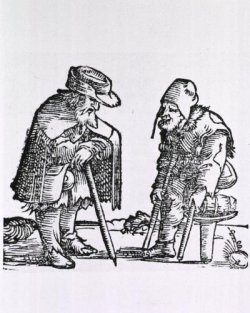
May 2016
Graduate Student Panel
Wednesday, May 4th, 4-5:30 p.m.
- Carole Reading (Montclair State University, English)
“‘What hinders then / To reach and feed at once both body and mind?’: Temptation and the Moral Emotions in Milton” - Cameron Smith (Montclair State University, History)
“Vlad Tepes, his military campaign against the Ottoman Empire in 1462, and the forging of a Romanian national identity” - Reyther Ortega (Montclair State University, Spanish and Italian)
“Writing the Wardrobe, Fashioning the Text: A Study of the Armor in Don Quixote”
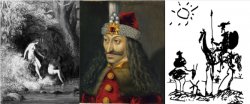
February 2016
Jeremy Lopez (University of Toronto)
“Shakespeare’s Life”
Wednesday, February 17th, 4-5:30 p.m.
Schmitt Hall 104
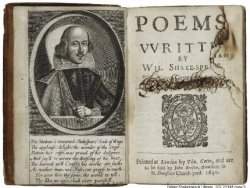
November 2015
Elizabeth Hyde (Kean University)
“Of Monarchical Climates and Republican Soil: André Michaux and Franco-American Botany in the Eighteenth Century”
Wednesday, November 18th, 4-5:30 p.m.
Schmitt Hall 104

October 2015
Richard Strier (University of Chicago)
“Paleness versus Eloquence: The Ideologies of Style in the English Renaissance”
Wednesday, October 28th, 3:30-5 p.m.
Schmitt Hall 104
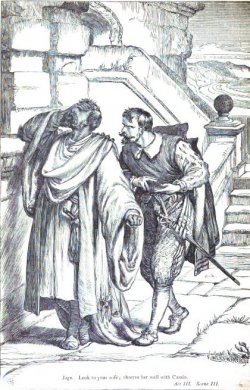
September 2015
Alan Cottrell (Montclair State)
“Hippolytus Restored: Angelo Poliziano and Creating Classical Scholarship
in the Italian Renaissance”
Wednesday, September 30th, 4-5:30 p.m.
Schmitt Hall 104

April 2015
Graduate Student Panel
Wednesday, April 15th, 4-5:30 p.m.
Dickson Hall, Room 179
- Tiffany Errickson (Montclair State University, English)
“The Lady’s Logos: Speech as Action in Comus” - Séraphine N’zue-Agbadou (Montclair State University, Modern Languages and Literatures)
“How Did the Reformation Influence 16th-Century French Literature?” - Beth Tippenreiter (Montclair State University, English)
“Hot and Bothered: The Beelzebub-Satan Consort Relationship in John Milton’s Paradise Lost”
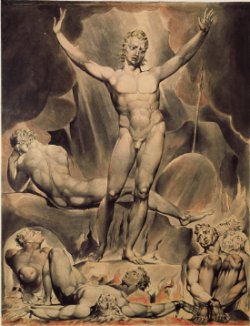
March 2015
Julia Landweber (Montclair State)
“Embracing the ‘Queen of Beans’: How Coffee was Adopted into French Fashion, Medicine, and Diet, 1660-1780”
Wednesday, March 18th, 4-5:30 p.m.
Dickson 179
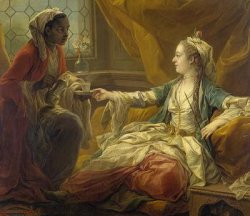
February 2015
Bradin Cormack (Princeton University)
“In the Time of Example: Being Unruly in Shakespeare”
Thursday, February 26th, 5-6:30 p.m.
Cohen Lounge, Dickson Hall
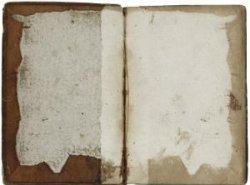
December 2014
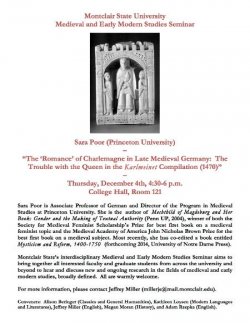
March 2014
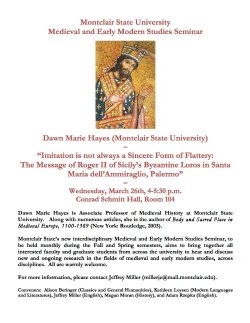
February 2014
